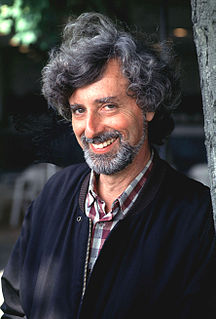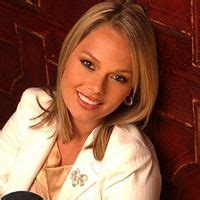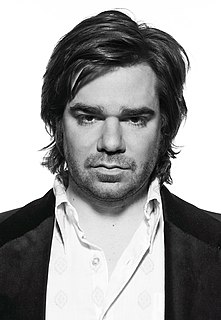A Quote by Philip Kaufman
I read, therefore I'm interested in writers.
Quote Topics
Related Quotes
Read a lot. But read as a writer, to see how other writers are doing it. And make your knowledge of literature in English as deep and broad as you can. In workshops, writers are often told to read what is being written now, but if that is all you read, you are limiting yourself. You need to get a good overall sense of English literary history, so you can write out of that knowledge.
Reading has always brought me pure joy. I read to encounter new worlds and new ways of looking at the world. I read to enlarge my horizons, to gain wisdom, to experience beauty, to understand myself better, and for the pure wonderment of it all. I read and marvel over how writers use language in ways I never thought of. I read for company, and for escape. Because I am incurably interested in the lives of other people, both friends and strangers, I read to meet myriad folks and enter their lives- for me, a way of vanquishing the “otherness” we all experience.
I read continually and don't understand writers who say they don't read while working on a book. For a start, a book takes me about two years to write, so there's no way I am depriving myself of reading during that time. Another thing is that reading other writers is continually inspiring - reading great writers reminds you how hard you have to work.
I would give them (aspiring writers) the oldest advice in the craft: Read and write. Read a lot. Read new authors and established ones, read people whose work is in the same vein as yours and those whose genre is totally different. You've heard of chain-smokers. Writers, especially beginners, need to be chain-readers. And lastly, write every day. Write about things that get under your skin and keep you up at night.
I wasn't interested in sport or anything obvious, so I didn't stand out. I was interested in music, but I couldn't read music, so I wasn't allowed to do the GCSE. I was interested in painting, but no one's interested in a 16-year-old boy who's interested in painting. I wanted to get out of school very, very quickly.
We, including many Christians, read the Bible through "eyes" conditioned by, and even accommodated to, modern Western culture plus the influences of messages and ideas from other cultures that are alien to the worldview of the biblical writers. Therefore, in order fully to understand the Bible and allow the Bible to absorb the world (rather than the world - culture - absorb the Bible) we must practice an "archaeology" of the biblical writers' implicit, assumed view of reality.





































